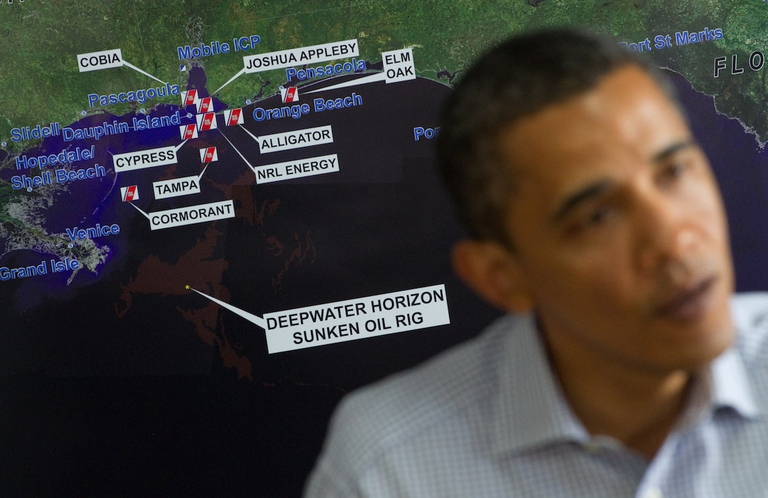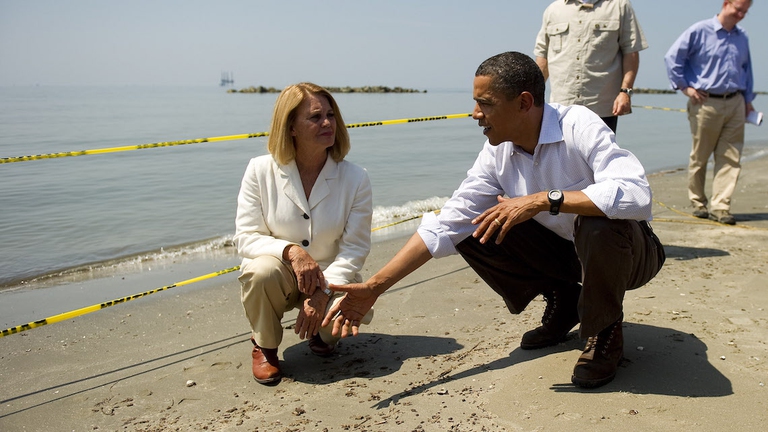
A report by Ember explains that in 2025 electricity generation from renewables (solar, wind and hydropower) surpassed that from fossil fuel sources.
The United States and Canada have announced a permanent ban on oil and gas drilling in parts of the Arctic and the Atlantic.
Barack Obama will leave office in less than a month, and Donald Trump will succeed him. Thus, the decision on offshore drilling made by the outgoing President of the United States on 20 December seems a kind of environmental last will. He made a historic move to block gas and oil drilling in the Arctic and the Atlantic, indefinitely.
Obama had already announced his will of protecting such areas, which are home to precious and endangered animal and plant species. At that time, however, Obama hypothesised only a 5-year ban. So, the great news is the ban duration. A 1953 law, the so-called Outer Continental Shelf Lands Act, which gives heads of state the power of protecting federal waters from gas and oil drilling, allowed permanently blocking all activities linked to fossil fuels.
The ban will involve an area of 1.5 million hectares along the Atlantic coast, from Norfolk, Virginia, to Maine. Similarly, Arctic US waters – an area of 46 million hectares – will be protected. “These actions protect a sensitive and unique ecosystem that is unlike any other region on Earth,” Obama said in a statement. Canada’s Prime Minister Justin Trudeau has made a similar choice. “Together we’ve taken a historic step,” commented Obama.
International environmental associations have welcomed the news with great satisfaction. Michael Brune, Executive director of the Sierra Club, said that the actions taken by the US “won’t allow a future president to destroy those areas”. Alessandro Gianni of Greenpeace-Italy said: “We will see if Trump, who has always backed oil giants, will go against 5 million people worldwide and those indigenous communities that want more than the destruction caused by oil drilling”.
However, there’s the risk that the Trump administration will reverse the ban. And there’s a precedent that proves it. Back in the 1990’s, then-President Bill Clinton made a similar move on oil drilling based on the 1953 law. His successor, George W. Bush, started a legal battle that ended with the cancellation of the ban in some parts of the involved areas. Therefore, Trump could turn to federal justice.
Siamo anche su WhatsApp. Segui il canale ufficiale LifeGate per restare aggiornata, aggiornato sulle ultime notizie e sulle nostre attività.
![]()
Quest'opera è distribuita con Licenza Creative Commons Attribuzione - Non commerciale - Non opere derivate 4.0 Internazionale.
A report by Ember explains that in 2025 electricity generation from renewables (solar, wind and hydropower) surpassed that from fossil fuel sources.
The Tyler Prize, considered the “Nobel Prize for the Environment,” has been awarded to Toby Kiers, an American biologist working in Amsterdam.
It seems a new love between Canada and the United States, between Prime Minister Justin Trudeau and President Barack Obama, has bloomed. This is thanks to their common interest in fighting global warming. On 10 March, Trudeau and his wife carried out an ice-breaking visit at the White House. It was the first official visit
Belgium is one of the countries most exposed to climate change. Dune–dikes are a solution to curb sea-level rise.
Between October 2024 and September 2025, the average temperature in the Arctic was 1.6 degrees Celsius higher than during the 1991–2020 period.
Undeclared conflicts of interest, paid authors, lack of transparency: one of the most cited studies on glyphosate, published in 2000, has been retracted.
The Copernicus service has released data for the first eleven months of 2025: global warming is set to come close to last year’s record.
The European Council and Parliament have reached an agreement on the European Commission’s proposal to deregulate new GMOs. But farming, organic agriculture, and environmental organizations are calling for it to be stopped.
The world’s second-largest producer has taken a historic decision. However, farms will have until 2034 to shut down.









